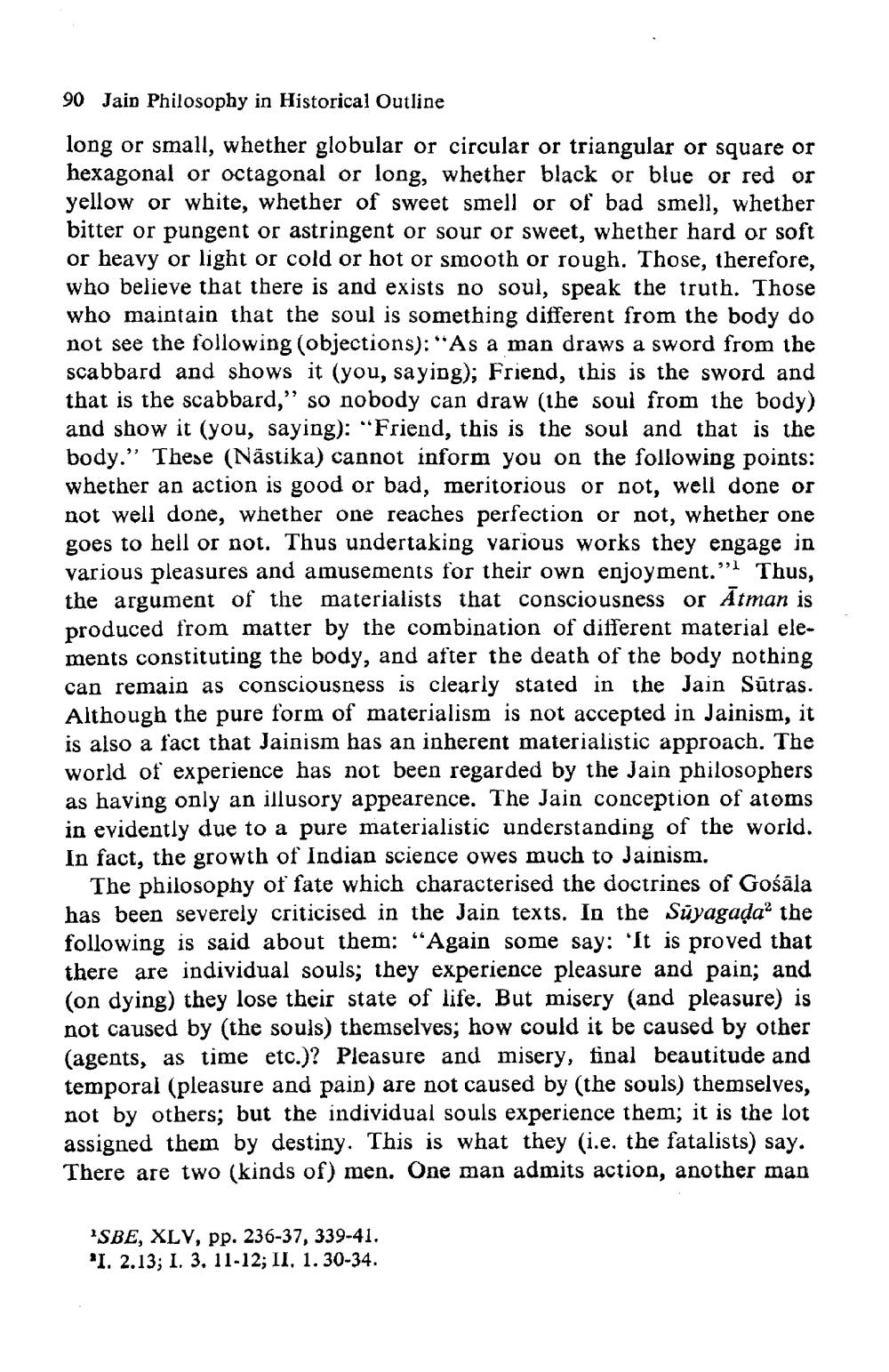________________
90 Jain Philosophy in Historical Outline
long or small, whether globular or circular or triangular or square or hexagonal or octagonal or long, whether black or blue or red or yellow or white, whether of sweet smell or of bad smell, whether bitter or pungent or astringent or sour or sweet, whether hard or soft or heavy or light or cold or hot or smooth or rough. Those, therefore, who believe that there is and exists no soul, speak the truth. Those who maintain that the soul is something different from the body do not see the following (objections): "As a man draws a sword from the scabbard and shows it (you, saying); Friend, this is the sword and that is the scabbard," so nobody can draw (the soul from the body) and show it (you, saying): "Friend, this is the soul and that is the body." These (Nästika) cannot inform you on the following points: whether an action is good or bad, meritorious or not, well done or not well done, whether one reaches perfection or not, whether one goes to hell or not. Thus undertaking various works they engage in various pleasures and amusements for their own enjoyment."1 Thus, the argument of the materialists that consciousness or Atman is produced from matter by the combination of different material elements constituting the body, and after the death of the body nothing can remain as consciousness is clearly stated in the Jain Sūtras. Although the pure form of materialism is not accepted in Jainism, it is also a fact that Jainism has an inherent materialistic approach. The world of experience has not been regarded by the Jain philosophers as having only an illusory appearence. The Jain conception of atoms in evidently due to a pure materialistic understanding of the world. In fact, the growth of Indian science owes much to Jainism.
The philosophy of fate which characterised the doctrines of Gośāla has been severely criticised in the Jain texts. In the Suyagaḍa2 the following is said about them: "Again some say: 'It is proved that there are individual souls; they experience pleasure and pain; and (on dying) they lose their state of life. But misery (and pleasure) is not caused by (the souls) themselves; how could it be caused by other (agents, as time etc.)? Pleasure and misery, final beautitude and temporal (pleasure and pain) are not caused by (the souls) themselves, not by others; but the individual souls experience them; it is the lot assigned them by destiny. This is what they (i.e. the fatalists) say. There are two (kinds of) men. One man admits action, another man
'SBE, XLV, pp. 236-37, 339-41. I. 2.13; I. 3. 11-12; II. 1. 30-34.




